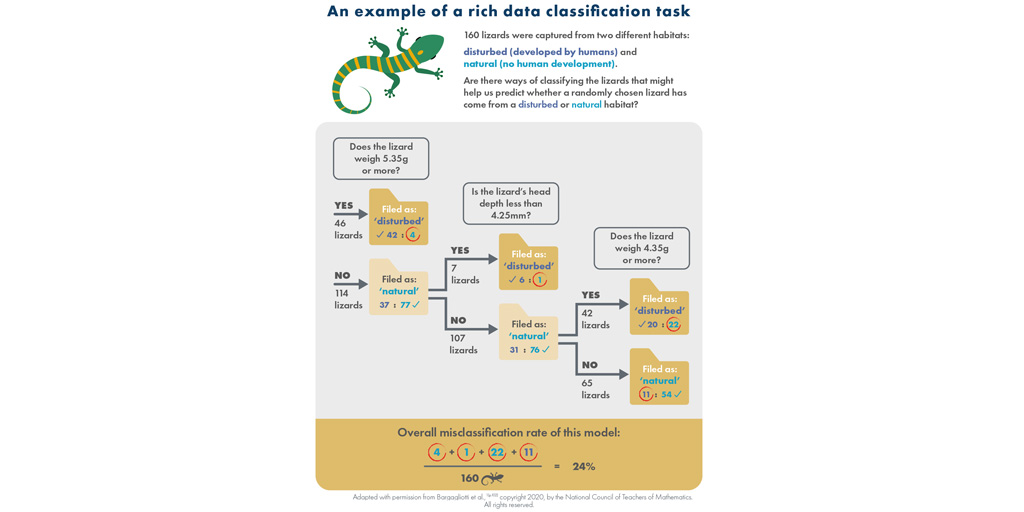16 March 2022

What does research suggest about teaching statistics using rich data sets?
- Rich data sets – which may be messy, have many variables (multivariate), a complex structure, and a mixture of both qualitative and quantitative data – may support student engagement and create opportunities for cross-curricular work
- Approaches such as exploratory data analysis, informal inference, and data modelling are complementary to working with rich data sets
- Using rich data shifts the focus of statistics lessons away from procedural fluency towards interpretation and discussion and so may require different approaches to assessment
- When using multivariate data, it is important to use contexts with which students are familiar, access to carefully designed software tools, and well-structured activities
- When engaging with rich data a problem-solving cycle approach is recommended
- Rich, multivariate data sets should contain a range of different data types to allow the posing of interesting and engaging questions and problems
View Espresso